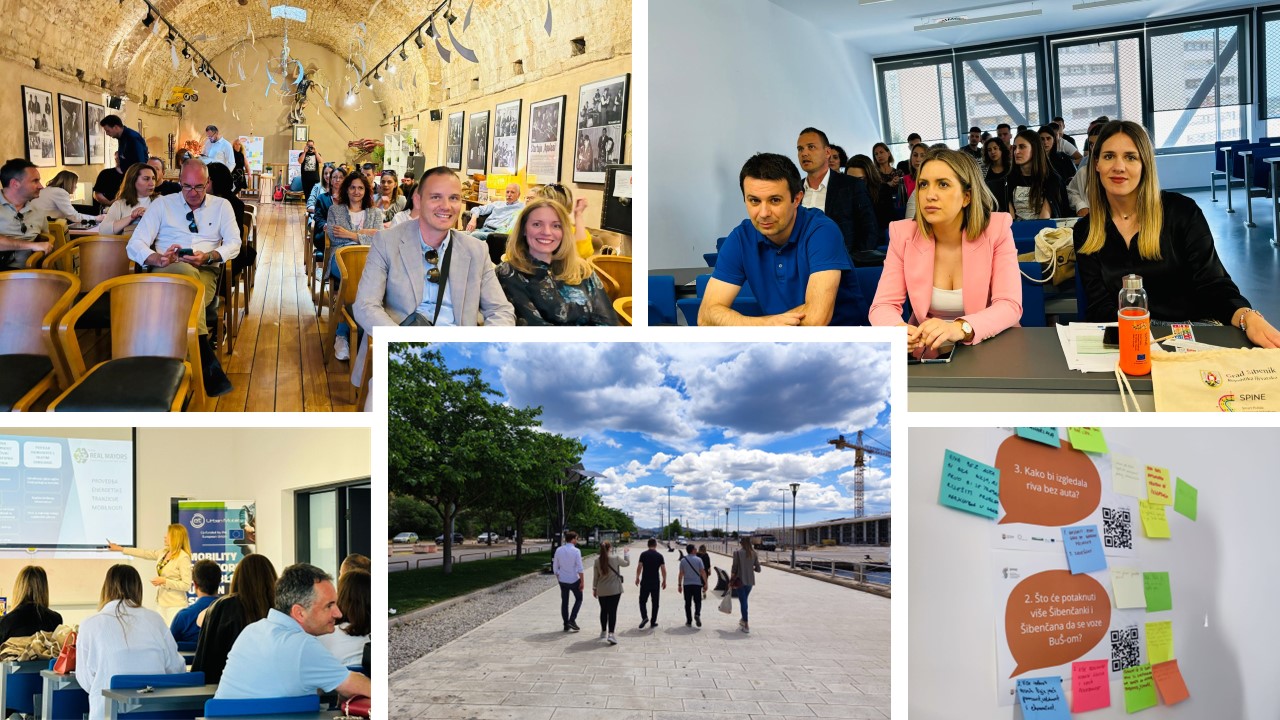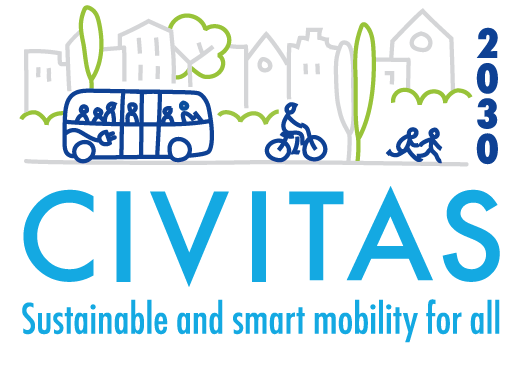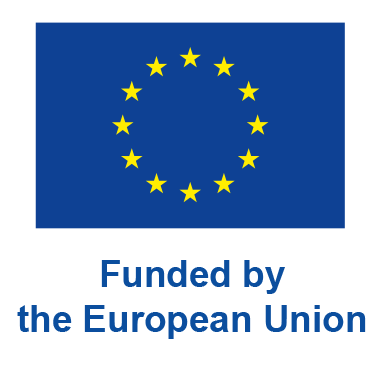News
09.05.2024
Dialogue with Citizens: Šibenik Residents Propose Improvements to the City’s Public Transport
The public event “Dialogue on Innovations and Transport-Spatial Improvements” was held on May 9th and 10th in Šibenik. Approximately 60 participants attended this two-day workshop, which was organized by the City of Šibenik, ODRAZ, Gradski Parking, the Polytechnic of Šibenik, and REGEA as part of the SPINE project. The aim was to enhance public transport and urban space to accelerate progress towards climate neutrality.
The topics on the agenda were innovations in mobility, the concept of living labs, measures to be implemented within the SPINE project, results of a passenger satisfaction survey with public transport service, and examples of the public transport renaissance in Šibenik. The event concluded with citizen proposals for further improving public transport.
On the first day, around 30 students and staff from the Polytechnic of Šibenik participated at the workshop. The program began with a brief presentation of the SPINE project – smart initiatives in public transport for climate-neutral cities in Europe, presented by Magdalena Makar from ODRAZ. Antonia Burić from the City of Šibenik introduced the planned activities and measures to be implemented in Šibenik within the SPINE project.
Darijo Šego from the Polytechnic of Šibenik shared insights into citizens’ satisfaction with public transport services. The survey indicated that women use public transport more frequently for daily needs compared to men. Most PT users are either under 20 or over 60 years old. Respondents were most satisfied with the drivers’ politeness and bus cleanliness, while the least satisfactory aspect was the equipment at bus stops.
During the discussion with participants, it was concluded that there is no single solution to attract more men to use public transport. Various measures are needed, including media campaigns, promoting public transport, raising awareness of its importance and benefits, education from the early age, increasing the number and frequency of bus routes and implementing “push” measures such as parking policy changes.
The official part of the program concluded with an interactive presentation on Innovations in Urban Mobility with examples of living labs and pilot projects by Petra Grgasović from REGEA. It was discussed that innovations do not always refer to something new but depend on perspective and context, such as introducing innovations into a system that previously did not have them. Risks arise from unthoughtful, ex-cathedra introduction of innovations. It’s necessary to establish testing of such solutions, for example, in the form of a living lab. Participants agreed that cities play a crucial role in this process.
The first day concluded with a walk to the locations where specific measures from the SPINE project will be implemented. Along the promenade near the ferry port, an interactive information kiosk will be set up to provide all relevant public transport information to residents and visitors of Šibenik. Several locations for the implementation of electric charging stations were also visited. Šibenik representatives explained the choice of the locations. Participants agreed with the suggestions and are looking forward to the implementation phase.
On the second day, around 30 participants, including citizens, CSOs representatives, relevant institutions, and other stakeholders from Šibenik, gathered at Azimut. Introductory lectures served as a foundation for the latter dialogue. The event allowed citizens to actively participate in shaping the future of public transport and urban space in their city. Through open discussion, participants had the opportunity to present their suggestions, comments, and ideas, contributing to the creation of a more inclusive and sustainable public transport system.
An interactive lecture on why we need innovations and their importance in achieving the EU’s climate and transport policy goals was held by Petra Grgasović from REGEA.
Ivan Kundid from Gradski Parking presented innovations in public transport in Šibenik. He introduced plans for improving public transport, including new technologies and services that will enhance the system’s efficiency and reliability. He was also available to citizens for any questions they had regarding public transport and explained how to submit requests for service improvements.
Goran Lampelj from ODRAZ encouraged and moderated a dialogue with citizens, during which numerous ideas and proposals were presented.
The event resulted in several conclusions and recommendations for improving public urban transport in Šibenik:
- Bus stops need to be adapted to be more accessible to people with reduced mobility and parents with small children where infrastructurally possible. Additionally, public transport applications should clearly indicate which bus lines and stops are accessible to people with reduced mobility.
- The pilot project for introducing a shared bicycle system showed some imperfections, eg. bicycles were often abandoned by the roadside, indicating a need for better-organized and safer micromobility infrastructure.
- The frequency of bus lines to tourist destinations, such as Krka National Park, needs to be increased, especially during the tourist season. Synergy between different stakeholders (City of Šibenik, Gradski Parking, Šibenik-Knin County, NP Krka, tourist board) is crucial for the success of such initiatives.
- Improperly parked vehicles obstruct pedestrian paths and hinder easy access to public transport. Monitoring and penalizing such offenses are necessary.
- Increasing transparency and passenger information will certainly contribute to increasing the number of passengers. Clear information on lines, departures, stops, and providing timely information within buses are key. It is also necessary to promote the various ways to purchase tickets and obtain subsidies, which many users are still unaware of.
- Improving infrastructure, such as new and sheltered bus stops and adapting sidewalks, is crucial for enhancing the accessibility of public transport in Šibenik. Collaboration with conservators is needed in the old town area.
Promotion, education, synergy with relevant stakeholders, the introduction of innovative and digital solutions, and their testing through the living lab concept were key citizen proposals for improving public transport services in Šibenik. Proposals are in line with SPINE goals.
The event concluded with an optimistic outlook for the future, announcing further steps and activities aimed at achieving climate neutrality and improving the quality of life for Šibenik residents.
View the photo gallery HERE.
The two-day event was organized as part of the SPINE project, which is funded by the Horizon Europe program.



